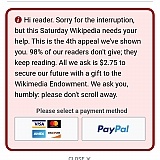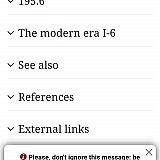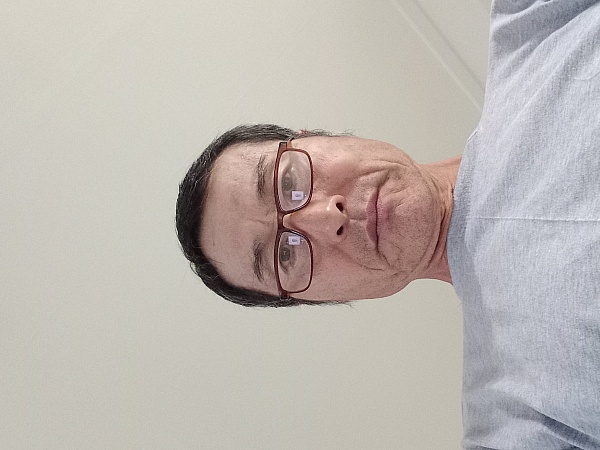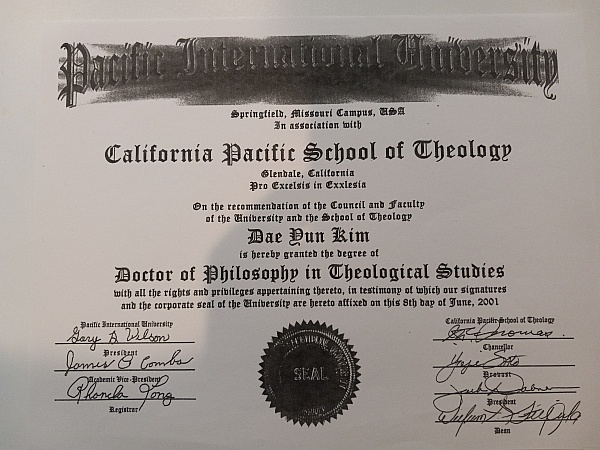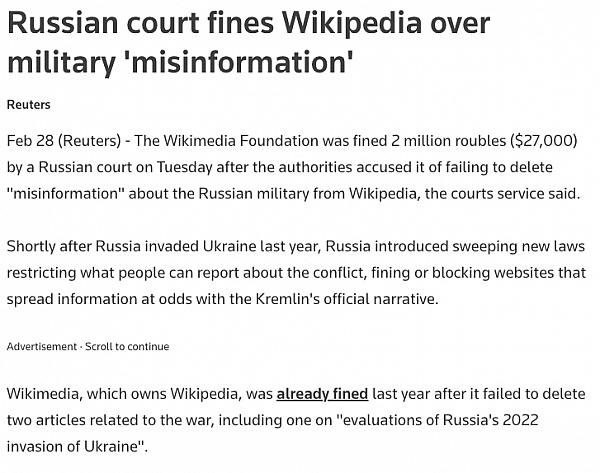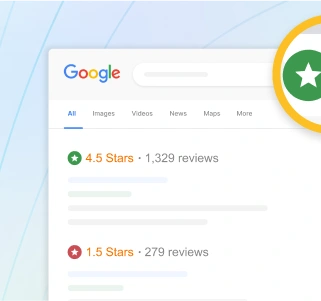

Whenever I have a question, I turn to Wikipedia for answers. If you can't find it here, it's probably not worth knowing...

No ads makes the website so easy to use. The amount of information they give on any one subject is amazing.

Wikipedia provides good info and this site also provides editing services if there is any mistake you find in the data.
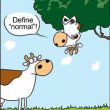
Great site I hope it stays up for many years to come. It needs more supporters though helping with donations.
As a source of information, I might give Wikipedia 2 or 3 stars. They do have an extensive collection, but certainly not everything. But, the quality of writing in ways that make the information accessible to anyone is very inconsistent. The authors (and Wikipedia should encourage this) should link to external sites for more technical content.
I just tried posting a set of 4 interrelated pages. And, I'm already screaming and thinking about posting elsewhere.
1. The whole interface is obtuse and far more difficult than it needs to be.
2. Instructions are often wrong (e.g., they say to click on "Save Page" when there is no such button or link) or incomplete (they say to do so and so, but they give you no clue as to where to do this).
3. To get help, you have to go through this completely ridiculous process of posting a question. Why not just have a forum in the typical forum format? Why make it so difficult? It took me 6 tries to get a question posted.
4. They should have all of their instructions and taboos posted in a one simple to access and read area. But, no... they make you dig for it, just guess, or find out the hard way when they reject a page.
5. There should be a way to easily communicate with one individual who made a decision to reject so that you have a consistent way of making changes.
I've worked extensively on Wikidot sites and with their forum. There is a night and day difference. I just find Wikipedia to be frustrating in all aspects from the posting angle, and, I'm not sure how to express this, but there is some deeply embedded ignorance/stupidity or arrogance that prevents them from doing something other than a giant framework of obsolescence. Some group needs to do something better and push out Wikipedia.
Very reliable. Have found a lot of useful information on there. Kudos to the people who work so hard on keeping it updated so quickly.
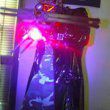
wikipedia.org is a great free service to find out a lot of good detailed information about pretty much any subject you want, thank you wikipedia!

The editors on this site are sometimes really uptight and rude. The information is top-notch, however. I visit this website more than any other.
Many times i took data from wikipedia. Most of the time i got good marks in my assignments and research papers. Thank you wikipedia.

I used to support Wikipedia and donate, which I did back in 2014. But in recent times I find that what I read is outside of what they should be publishing. Wikipedia claim on multiple profiles it published (about people and organisations) that many of them propagate misinformation. They provide no real evidence of this. Those people and groups they publish things about that I read, are supported by massive informed movements (not funded by Big Pharma or main stream media). Recently the EU Parliament with the help of these movements involving many brave people, identified atrocities committed by organisations during the Covid period. These organisations want control and censorship over anyone outspoken that goes against their narrative, which can only point to money. By not editing objectively the information written, they themselves (Wikipedia) are propagating misinformation. They should stay independent of this and they do not. One good example of this is Dr John Campbell from the UK. He has only ever presented the truth and evidence based information from reputable sources. What is said about him let alone many others is far from correct information, which means it is misinformation. Wikipedia also reported information on Russia's military with no real evidence. This is simply wrong no matter what we think of Russia and the war. From what we understand today about Wikipedia, any one of a thousand or more editors working for Wikipedia can protect any article which leads me to believe that any one of them could possibly receive back-handers to do so. Many issues arose with Wikipedia information when Donald Trump became president too. You can read this all online and I have provided some clips. Wikipedia seldom substantiates the things it publishes well, especially controversial information. If you can't substantiate it properly, do not publish it. Moreover I think Wikipedia should only provide generic information about anything and anyone, without bias. Because Wikipedias information is almost editable to anyone, it can never be reliable. Many education organisations and media groups are not allowed to quote Wikipedia information for this reason. While many things it publishes seems to be fine, there are more than enough misleading information pieces to make Wikipedia quite unreliable as a whole. The world does not need such an online resource that is skewed and unreliable in providing any information about anything. They can not be trusted, this is clear.
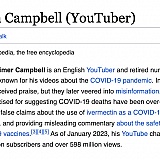
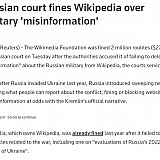
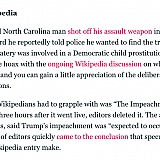
I love Wikipedia! Where else can you learn everything you wanted to know all in one place. I get lost here for hours!

Great for looking up info quickly. Simple to use, good design, Plenty of links so you don't need to constantly look up every big word you see.

Probably the most unlikely success given the commercialization of the web, this is one of the best-known and most frequently used information resources there is. It's so popular there's no point in trying to describe it.
From time to time I've done some actual paid work for a living - not often, I wouldn't want to make a habit of it - at a search engine. So I happen to know that around five years ago, Wikipedia wasn't regarded as an entirely reliable resource and didn't get the help up the rankings that other, more traditional resources did. But eventually the lengthy debate over Wikipedia's usefulness has been largely won and it's widely recognized now as the site that people expect to see at the top of searches when they're looking for information on almost any subject. Even if a page may not be entirely accurate or objective, that's what people want to see before they look elsewhere for other, perhaps more academic (or more expensive) resources.
There will always be some concerns, that goes without saying with any Wiki project. It's widely known that there's some factional infighting in some organizations and beliefs and the encyclopedia has been subverted from time to time by people who are more interested in promoting their bias than anything else. But even if there is a chance, however remote, that a Wikipedia page might not be entirely factual or up to date, nevertheless it's what we all want and expect to see when we search for information and it would be foolish for a search engine to ignore that.
Which means that Wikipedia is now and is likely to continue to be the major information source for everyday inquiries on the web for the forseeable future. And there's not an ad in there, and nobody gets paid to contribute. Which is what the driving philosophy of the worldwide web was always intended to be, if you're old enough to remember back that far, and really it's quite remarkable that the project has not only survived, but risen to such status. If you're looking for a good cause to donate to, you could do a lot worse than support this one.

This site is a life saver, I use it often. Even though people add or edit the info, most of the time it is accurate.

WikiPedia - This site is an encyclopedia reader's dream come true.:-) It is also good for quick blurbs or descriptions for "what/where is that!?".

I love this site! Its just so simple to use. :) I trust the information and it so nice to be user of wikipedia.org

I use it all the time! They have an article on almost everything. I would say the most complete version humanities collective knowledge on the web.
A top-notch online encyclopedia for readers. The creator is a genius, to come with such a great idea.

The pages given on the site are quite informative. Plus if the data given on a topic has not been verified then it is mentioned on the page.
Q&A (5)
ABSOLUTIST, IGNORANT & SIMPLIFIED CENSORSHIP WITH NO POSSIBILITY TO DISCUSS I want an answer! Admin Eumolpo blocked my account and erased all my contributions after I added a video-critic about Italian Political Religious Economical business moviment "Comunione e Liberazione", WHY? He just mentioned ¨vandalism¨ in his blocking tag, I contacted him several times in several ways but no answer.
Answer: That's how they are. They call everything they don't like "vandalism." They called it vandalism when I wrote on my own user page about how I disagreed with decisions that were made. I guess this is an old post, but it still matters, and they haven't changed at Wikipedia in any way that I'm aware of.
How easy is it to get a hold of customer service at Es.m.wikipedia.org?
Answer: La primera ves que ultilize el servicio al cliente me respondieron muy rapido
Is Es.m.wikipedia.org a scam or a legit company?
Answer: Una compañia legitima muy confiable y lo mejor que es gratis
Have a question?
Ask to get answers from the Wikipedia staff and other customers.
Overview
Wikipedia has a rating of 2.8 stars from 174 reviews, indicating that most customers are generally dissatisfied with their purchases. Wikipedia ranks 1st among Open Source sites.
- Visit Website
- San Francisco, CA, United States
- Edit business info
Company Representative
- Sitejabber’s sole mission is to increase online transparency for buyers and businesses
- Sitejabber has helped over 200M buyers make better purchasing decisions online
- Suspicious reviews are flagged by our algorithms, moderators, and community members
Similar businesses you may also like
See more Open Source Businesses- Sitejabber’s sole mission is to increase online transparency for buyers and businesses
- Sitejabber has helped over 200M buyers make better purchasing decisions online
- Suspicious reviews are flagged by our algorithms, moderators, and community members





